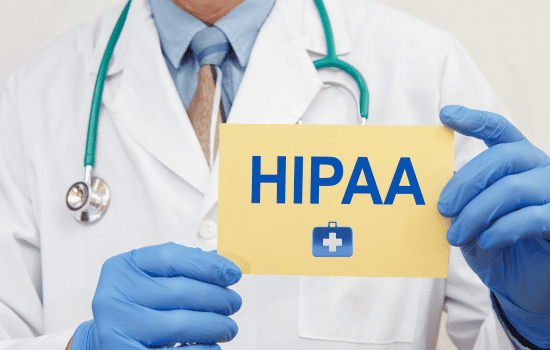Why Compliance Training Is Essential in Healthcare: Boosting Patient Safety & Mitigating Risks
Discover the essential role of compliance training in healthcare and how it safeguards patients, staff, and organizations.
In the ever-evolving landscape of healthcare, compliance training has become a cornerstone of operational excellence. As regulations grow increasingly complex, ensuring that staff are well-trained in compliance is not just beneficial—it’s essential. Here are ten reasons why compliance training is crucial for healthcare organizations:
1. Enhances Patient Safety
Compliance training equips healthcare professionals with the knowledge to follow established protocols, directly contributing to safer patient care.
“When staff are well-versed in compliance, patient safety isn’t just improved—it’s prioritized.”
— Dr. Emily Rodriguez, Chief Medical Officer
By minimizing medical errors and adhering to best practices, patients receive the highest standard of treatment.
2. Reduces Legal Risks
A well-informed staff is less likely to engage in practices that could lead to legal issues.
- Mitigate Risks: Compliance training helps organizations avoid potential lawsuits and financial penalties arising from non-compliance.
- Stay Protected: Understanding laws and regulations shield the organization from legal pitfalls.
3. Promotes Ethical Standards
Healthcare professionals often face ethical dilemmas.
- Uphold Integrity: Compliance training reinforces the importance of ethics, helping employees navigate challenges responsibly.
- Build Trust: An ethical approach fosters trust among patients and the community.
4. Improves Organizational Reputation
Organizations committed to compliance foster trust and credibility.
- Patient Confidence: Reassure patients they are receiving care from a responsible provider.
- Community Standing: A reputable organization attracts more patients and top talent.
“A strong compliance program doesn’t just protect us legally—it enhances our reputation in the community.”
— Sarah Thompson, Director of Compliance
5. Ensures Regulatory Adherence
The healthcare industry is subject to numerous regulations at federal, state, and local levels.
- Avoid Violations: Compliance training ensures staff are aware of and adhere to these regulations.
- Stay Updated: Regular training keeps the organization current with evolving laws.
6. Boosts Employee Accountability
Training creates a culture of accountability within the organization.
- Empowered Staff: Employees understand their roles and the importance of compliance.
- Engaged Workforce: A responsible workforce leads to better patient care and organizational efficiency.
7. Facilitates Accurate Billing and Coding
Compliance training includes essential information on billing and coding practices.
- Prevent Fraud: Ensure accurate claims processing to avoid fraudulent activities.
- Financial Health: Proper billing contributes to the organization’s financial stability.
8. Fosters Continuous Improvement
Ongoing compliance training encourages regular assessment and enhancement of compliance programs.
“Compliance is not a one-time event; it’s an ongoing commitment to excellence.”
— Michael Lee, Healthcare Compliance Consultant
- Adaptability: Stay ahead of regulatory changes and industry best practices.
- Quality Enhancement: Continuously improve processes and patient care.
9. Encourages a Culture of Safety and Quality
By prioritizing compliance training, organizations promote a culture that values safety and quality in patient care.
- Better Outcomes: A safety-focused culture leads to improved health outcomes.
- Patient Satisfaction: High-quality care enhances the overall patient experience.
10. Supports Funding and Accreditation Requirements
Many funding sources and accreditation bodies require compliance training.
- Meet Criteria: Fulfill requirements essential for securing financial support.
- Maintain Accreditation: Uphold standards set by accrediting organizations to remain in good standing.
Conclusion
Compliance training is vital for healthcare organizations aiming to deliver high-quality care while safeguarding themselves against legal and financial risks. By investing in comprehensive compliance training programs, healthcare providers not only protect their organization but also enhance the quality of care they offer to their patients.
Is your healthcare organization ready to strengthen its compliance training? Discover how SimpliTrain LMS can help you implement effective compliance training programs tailored to your needs.











